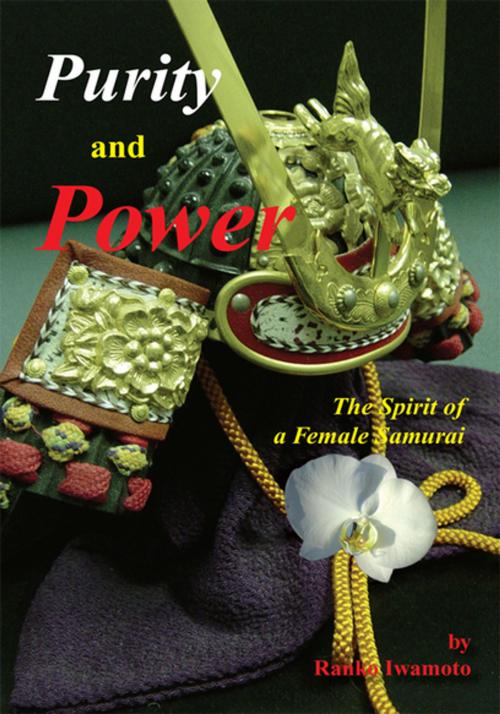| Author: | Ranko Iwamoto | ISBN: | 9781465330123 |
| Publisher: | Xlibris US | Publication: | August 18, 2006 |
| Imprint: | Xlibris US | Language: | English |
| Author: | Ranko Iwamoto |
| ISBN: | 9781465330123 |
| Publisher: | Xlibris US |
| Publication: | August 18, 2006 |
| Imprint: | Xlibris US |
| Language: | English |
Freedom must be sought from within and earned every step of the way to be truly meaningful, declares Ranko Iwamoto, author of Purity and Power, the Spirit of a Female Samurai. This authors early experiences with both her own culture of Japan and the culture of America are her testimony that genuine freedom cannot be given; it must be earned. Growing up in the chaos of post-WWII Japan, she experiments with this newly found freedom. And oh, how she experiments! She doesnt tell her father that her ship is sailing for America until two weeks before the departure. She had decided to go to America as a student to experience what young Americans go through. Why? To get to know Americans. She has no doubt in her mind that Japan and America will have trouble communicating with each other as they try to work together. She has no doubt either, that she is destined to go to America to help build communication bridges. As the story unfolds, we travel with her on her highway of life. We go from a station named, Japan to a station named, America, while simultaneously moving from a station called, Youth to one called, Adulthood examining and marveling at each incident and its implications along with her as she discovers and develops new survival techniques. We quickly notice, however, that she carefully screens her newly found survival knowledge before accepting it and putting it into practice, guided by her inherited samurai codes and a heart-felt pledge she had made to Heaven before she left Japan. We also realize that the ultimate goal of the author is to reach the state of mind that enables one to enjoy life, no matter what. In her effort to understand Americans and American ways, and in her earnest quest for the skills that she believed necessary for communication with Americans, Ranko gave herself a cultural immersion in life with American peers by enrolling in a four-year college in the U.S. We are richly rewarded with rare glimpses into a Japanese psyche and into that of a fragile, impressionable youth as the author encounters a wide variety of situations. We understand her innermost feelings upon meeting a living black man for the very first time. We share her intimate thoughts as she observes the striking cultural differences between American and Japanese houses, her agonies and despair over the human anatomy course, her joy in finding the secret of bringing nature into her inner life so that she can rest, and her growing sense of achievement. The writing style of the author is inviting easy to read, humorous, entertaining, insightful and quite inspirational. We are also treated to gems of thought like this description of effective oratory: It is a poem, in that words must be just right and placed just right; it is a song in that it is composed of pauses and notes, and each note must be hit just right; it is also a painting in that it supplies mental and emotional imagery. This oratorical painting is without effect if it lacks either poetry or music. Toward the end of the story, we find the author gradually awakening to the fact that nothing in life works out as we plan. She does not imply, however, a sense of resignation. On the contrary, her personal growth hints that she is well on her way to reaching that state of mind that enables one to enjoy life, no matter what. The core message of the book can be said to be: first, learn to trust your heart and let it guide you; second, recognize the defining moments life offers, knowing life is inviting you to be what you choose to be; third, accept people as they are, like the weather if you want to be accepted as you are. With this approach, life, whatever it brings, can be an amazing adventure and we can be gradually awakened to riches beyond counting. ### Comments for the author can be sent to her by e-mail, with subject line, reader comments to: [email protected]
Freedom must be sought from within and earned every step of the way to be truly meaningful, declares Ranko Iwamoto, author of Purity and Power, the Spirit of a Female Samurai. This authors early experiences with both her own culture of Japan and the culture of America are her testimony that genuine freedom cannot be given; it must be earned. Growing up in the chaos of post-WWII Japan, she experiments with this newly found freedom. And oh, how she experiments! She doesnt tell her father that her ship is sailing for America until two weeks before the departure. She had decided to go to America as a student to experience what young Americans go through. Why? To get to know Americans. She has no doubt in her mind that Japan and America will have trouble communicating with each other as they try to work together. She has no doubt either, that she is destined to go to America to help build communication bridges. As the story unfolds, we travel with her on her highway of life. We go from a station named, Japan to a station named, America, while simultaneously moving from a station called, Youth to one called, Adulthood examining and marveling at each incident and its implications along with her as she discovers and develops new survival techniques. We quickly notice, however, that she carefully screens her newly found survival knowledge before accepting it and putting it into practice, guided by her inherited samurai codes and a heart-felt pledge she had made to Heaven before she left Japan. We also realize that the ultimate goal of the author is to reach the state of mind that enables one to enjoy life, no matter what. In her effort to understand Americans and American ways, and in her earnest quest for the skills that she believed necessary for communication with Americans, Ranko gave herself a cultural immersion in life with American peers by enrolling in a four-year college in the U.S. We are richly rewarded with rare glimpses into a Japanese psyche and into that of a fragile, impressionable youth as the author encounters a wide variety of situations. We understand her innermost feelings upon meeting a living black man for the very first time. We share her intimate thoughts as she observes the striking cultural differences between American and Japanese houses, her agonies and despair over the human anatomy course, her joy in finding the secret of bringing nature into her inner life so that she can rest, and her growing sense of achievement. The writing style of the author is inviting easy to read, humorous, entertaining, insightful and quite inspirational. We are also treated to gems of thought like this description of effective oratory: It is a poem, in that words must be just right and placed just right; it is a song in that it is composed of pauses and notes, and each note must be hit just right; it is also a painting in that it supplies mental and emotional imagery. This oratorical painting is without effect if it lacks either poetry or music. Toward the end of the story, we find the author gradually awakening to the fact that nothing in life works out as we plan. She does not imply, however, a sense of resignation. On the contrary, her personal growth hints that she is well on her way to reaching that state of mind that enables one to enjoy life, no matter what. The core message of the book can be said to be: first, learn to trust your heart and let it guide you; second, recognize the defining moments life offers, knowing life is inviting you to be what you choose to be; third, accept people as they are, like the weather if you want to be accepted as you are. With this approach, life, whatever it brings, can be an amazing adventure and we can be gradually awakened to riches beyond counting. ### Comments for the author can be sent to her by e-mail, with subject line, reader comments to: [email protected]















